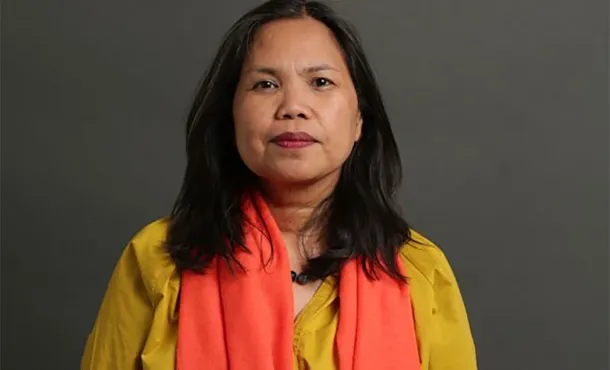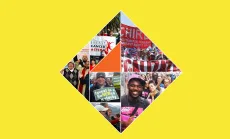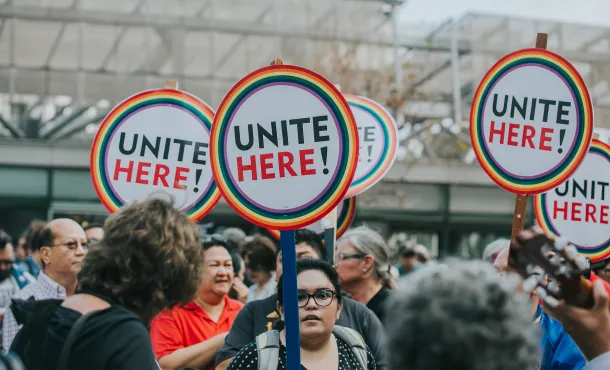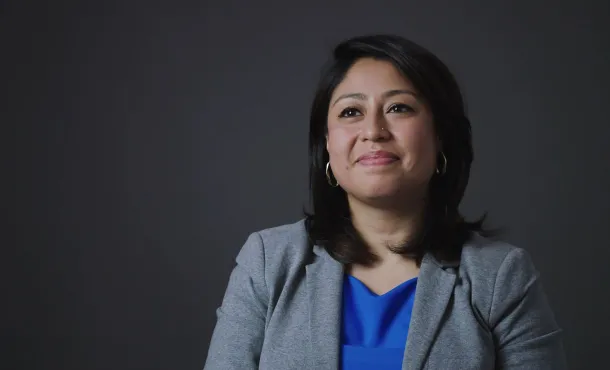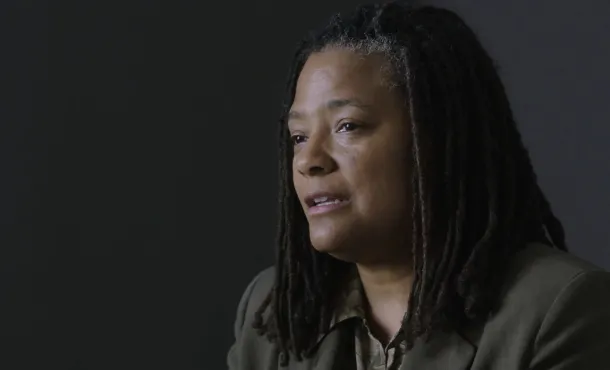Dream Riders
When does a bike ride become a plea for justice and change?
In September 2017, the Trump administration announced its intention to end new applications for the DACA program, which provides work permits and temporary relief from deportation for undocumented young people. It was a grim moment for young organizers working with the North Korean American Service and Education Consortium (NAKASEC) and its partners to help advance pro-immigrant policies. But at the same time, these young leaders were determined to turn this challenge into an opportunity for action.
With their “Journey for Justice,” the young immigrants embarked on a 1,784-mile ride from Seattle to San Diego to advocate for a pathway to citizenship for all non-citizens in the United States. During the tour, the Dream Riders met with hundreds of people to explain their cause and make a direct plea for action. They also were joined by other riders along the way who wanted to show their support for the cause of #citizenship4all.
This video shares their stories and reflect on the need for pathways to citizenship for undocumented immigrants.
California Campus Catalyst Fund launches
The Haas, Jr. Fund joined with the Chavez Family Foundation, Educators for Fair Consideration, Grove Foundation, Heising-Simons Foundation, Hellman Foundation, James Irvine Foundation, and Weingart Foundation to launch the California Campus Catalyst Fund, a multimillion-dollar effort to strengthen services and supports for Dreamers at public college and university campuses across the state.
“We Don’t Serve Your Kind Here.”
In the majority of U.S. states, people can be denied service in a restaurant, kicked out of a taxi cab, or denied access to a bathroom—just because of who they are or whom they love. That’s the alarming conclusion of a new report from the Movement Advancement Project (MAP). The report and an accompanying television ad highlight how “public accommodations” laws provide an unequal patchwork of protections for LGBT people across the country. The result is that half of LGBT people face a very real risk of discrimination and harassment in public places. The report outlines clear steps that lawmakers, advocates and business owners can take to help ensure that when businesses serve the public, they serve everybody equally.
Read about the outcome of the Masterpiece Cakeshop case here and the need for a federal solution to protect LGBT people.
This Isn’t About Cake
This month, the Supreme Court will hear an important case that puts this vision of an inclusive, equal society to the test. In Masterpiece Cakeshop vs. Colorado Civil Rights Commission, the Court is being asked to decide if a business should be allowed to discriminate against customers based on the business owner’s religious beliefs. The case is about a baker who refused to make a cake for a same-sex wedding. If the Court decides in favor of the baker, it will open the door to wider discrimination not just against LGBT people but against anyone whom a business owner can single out because of their lifestyle, their appearance or their beliefs.
The United States has come a long way in advancing nondiscrimination protections that help ensure equal treatment for all people, and we still have a long way to go. But the Masterpiece Cakeshop case would turn back the clock to a time when businesses had a license to discriminate under the law.
Religious freedom is a bedrock American value. But the freedom to practice one’s faith doesn’t include the freedom to hurt other people or take away their rights.
Read about the outcome of the Masterpiece Cakeshop case here and the need for a federal solution to protect LGBT people.
Inside Out Fundraising
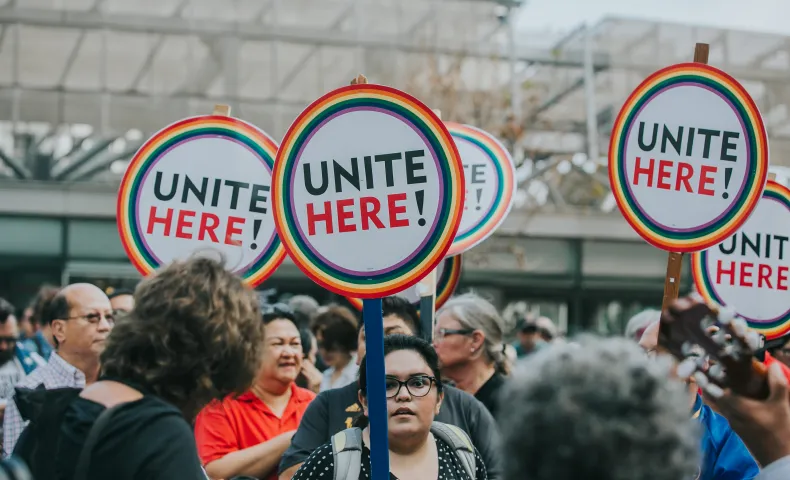 Photo by Jamie Thrower
Photo by Jamie Thrower In Inside Out Fundraising, Mark Rovner and Alia McKee are calling for nothing short of a transformation in how fundraising is valued and held in organizations. Transformation is change that is profound, radical and sustainable; change that fundamentally and indelibly alters the very nature of something.
We agree that transformation is what’s needed when it comes to raising resources to support social change. Fundraising and resource generation have long been pain points in a sector where there is real ambivalence about money and power. Many of us have experienced how fundraising is viewed as a “necessary evil” separate from the “real work” of making social change.
The stress of fundraising is cited by many executive directors as the number-one cause of burnout, and even a reason for leaving the sector entirely. At the other end of the spectrum, emerging leaders often call out fundraising as one of the job responsibilities for which they feel the least prepared when stepping into the executive role. And in a recent national survey, leaders of color reported feeling less ready to fundraise than white respondents, even though they were more likely to see themselves as visionary and able to relate to their organization’s target population.
Social change leaders who feel powerful in other circumstances, are often resistant to engaging in fundraising. We have deeply ingrained and cultural understandings of the propriety of asking for money, and these norms vary widely by race, ethnicity, class and gender. For some, asking people for money touches on personal experiences of scarcity. They confide that asking for money makes them feel like beggars. Meanwhile, fundraisers in social justice organizations report being treated like the “dirty money people” by their colleagues. This, no doubt, contributes to the high rates of turnover in the development position.
It will take more than new tools and tactics to help organizations break out of these deep-seated, chronic challenges. A growing consensus has emerged that what’s needed is a profoundly different stance towards fundraising. It’s an approach that’s captured in the concept of a “culture of philanthropy,” where money and mission are aligned, responsibility for raising resources is shared, and fund development is not just a financial transaction with supporters.
But too little has been written about how to help organizations achieve the kind of transformation and culture change this entails.
Clearly, a key ingredient is leadership, and not just at the top level. Developing a culture of philanthropy involves building strong teams across functional silos and helping them find their place of power with raising resources.
Yet culture change is hard. It’s difficult to even see what you’re trying to change when you’re inside it. And all systems have homeostasis. If you only push on one part, it may look like it’s changing, but before long the new practices erode and the organization resumes its familiar grooves.
This is why so many fundraising tactics and plans fail.
In recognizing this, and turning their attention to what it takes to transform systems and culture, Mark and Alia are jumpstarting a much-needed conversation.
A common refrain in the social change sector is “be the change.” How can raising resources to fund social change be part of the change? This conversation is long overdue.
Through their decades of experience coaching, training and partnering with scores of progressive organizations in their efforts to raise resources, Mark and Alia have learned a lot about what it takes. In this piece, they generously share these lessons, and extend an invitation to all of us to share ours.
Robert Gass
Co-founder
Rockwood Leadership Institute
& Social Transformation Project
Linda Wood
Senior Director
Haas Leadership Initiatives,
Evelyn and Walter Haas, Jr. Fund
